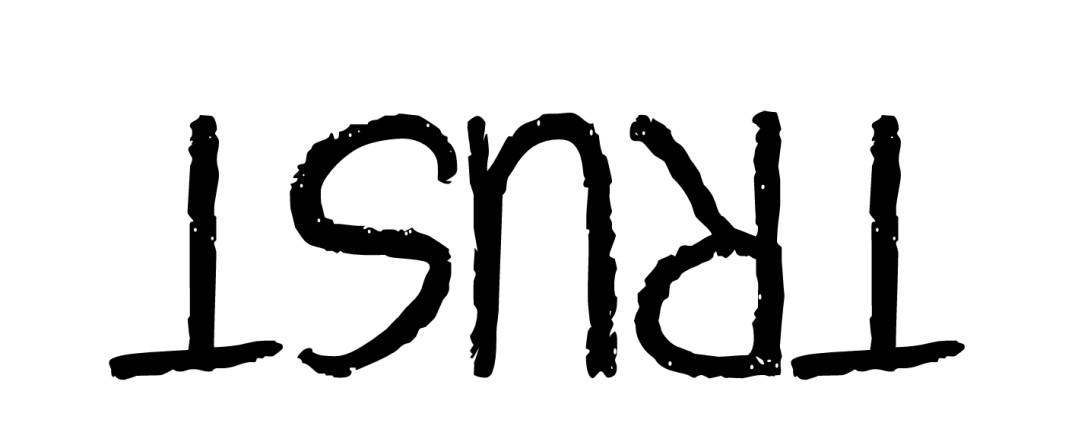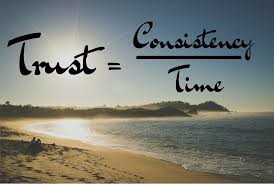
I have had a lecture in trust recently from a group of near-neighbours to an energy project. They knew I believed in both the project and the need to earn a Social Licence to operate. The project needed to be designed as a win-win for both the developer and the local community. We had built a decent level of trust together. But after a period away, the community used the term “trust” in a very different context.
You see, the near-neighbours told me they totally “trusted” the project design team. But to do what? They trusted them not to do a lot of what was agreed once they had an order from higher up to progress the way those higher up wanted to move forward. A world where abiding exactly to the letter of the law rather than its spirit was still paramount. A world where they prioritised their control rather than shared decision making for the areas where there should be a joint agenda. A world where the idea of Social Licence was deemed too abstract and non-tangible. A world where junior people dealt with the near-neighbours, isolated from senior people who took their decisions without having the full picture of risks and opportunities in front of them.
A result is I heard trust being used as follows:
- “I trust (so and so) to do very little of what we have agreed.”
- “I trust (so and so) to not deliver once his boss wades in.”
- “I trust (so and so) to tell a different story to his bosses than he tells to us.”
- “I trust (so and so) to now really be able to explain the whole picture simply because s/he does not know it.”
The list can go on, but you get the point…

We know that trust is an essential component of building a Social Licence to operate (defined as having the approval and support for our proposed project from the local community).
We know that to be trusted means that we will do no harm to others which is central to business risk management in today’s world.
We know that trust building takes time.
We know that trust building needs expectation management and a mutually agreed engagement path going forward. We know that trust is built in an environment of mutual respect.
We also know, however, that many people who can design win-win projects (see www.ThinkWinWinProject.com for context) are often only mobilised to clear up the mess made by a legalistic approach, rather than to lay the foundations and ensure a strong project development culture from the word go.
In the age of populistic leader like Trump and nationalistic movements like Brexit, trust is being turned somewhat on its head. Phrases such as “I trust that the system and processes used by the powers that be simply will not deliver on our basic needs” or, even more basic, “I trust that you will not tell me the whole story” are becoming shockingly common place. This feeling of disenchantment has been spreading quite rapidly over the past ten years throughout Europe and elsewhere. Our project development (and related business) foundations are being eroded by it. Yet, with each year, we need to develop more projects in more populated lands, which requires more and more complex forms of Social Licences.
From a project development perspective, this means that from the outset a local feeling of discontent or even outrage is combining with the need to develop more innovative solutions for more complex challenges. In this context, a project done without meaningful engagement not only means that many locally important dimensions are not addressed, but it also very quickly becomes a lightning rod for a lot of pent-up frustration from previous projects (and indeed, other aspects of society).
Listening to the conversations at boardroom level, it would appear that we are at a crossroads. Some argue to batten down the hatches and push through with the status quo legalistic project development approach; others argue to promote an organisational and senior management win-win thought process as the very first step of project development. Is the latter easy? No. Initially it is often more difficult and time consuming. But, when done in a systematic, structured and consistent manner, it yields a project all stakeholders are proud of, and where shareholders have a significant portion of their social risks removed.
Auditing a project’s design process against the likes of the 2017 OECD’s Meaningful Stakeholder Engagement Guidelines, rather than just becoming prepared for the first court case against a project’s permission (and its appeal) is a first immediate step. This latter win-lose (or lose-win or lose-lose) purely legalistic approach is not good for anyone. Even those who get immediate short-term gain undermine their longer-term success. This is not good for our nations; it is not good for our local communities; it is not good for our businesses.
Building a Social Licence needs to be done with the same rigour that we already use as project engineers and managers. Once the initial effort has been put into getting to know and build meaningful relationships with local stakeholders, co-created agreed processes to govern how assessments are done and decisions are made are required. These need to be very clear about how all stakeholders have a real say, and how we share information in a way that is credible. This is becoming more and more essential in both so called mature and fragile markets.

OECD’s 2017 audit document for meaningful stakeholder engagement in the extractive industry is welcomed as it sets workable standards in a workable process. It has buy-in from governments, businesses and not-for-profits alike. And it is applicable to not only the traditional extractive industries of mining and oil and gas, but also the extractive alternative energy industries such as wind, and the tourism industry that extracts income from making great areas of our planet open to others to enjoy.
Time is ticking. It is more and more urgent and important that, from the very conception of any project, robust standards and competences to lay the foundation for a Smart Project (one that is financially sound, technically feasible, environmentally compatible and locally supported) are part of the core conversations. To further examine this journey, www.ThinkWinWinProject.com helps summarise some fundamental information.

